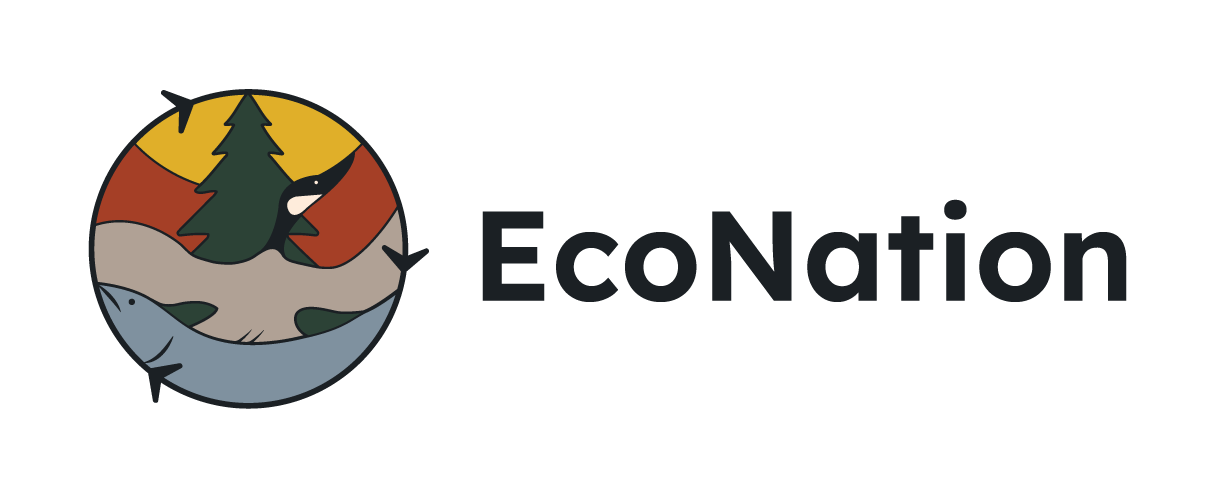Area of expertise
Sharing spaces between First Nations
Sharing spaces between First Nations
EcoNation Program
Our EcoNation program aims to create an Indigenous waste management awareness and engagement network. Each year, we provide training, support and resources to a cohort of young people aged 18–35 who will act as awareness officers in their communities.
Does your community have waste management infrastructure or projects? Do you want to increase participation, engagement and understanding of the environmental impact of waste? Are you between 18 and 35 years old? Do you want to become a land guardian in your community? If you answered yes to any of these questions, this program is for you!
Support your community’s efforts to ensure the success of your Waste Management initiatives
Help build the capacity and skills of Wste Management awareness officers
Support Indigenous youth as they learn to become leaders
Foster the development of a network of First Nations youth leaders

EcoNation awareness officers act as land guardians and reach out to the public through a variety of communication channels. Using a sensitive, people-centred approach, they also:

We provide land-based training with knowledge keepers that combines waste management concepts and safe cultural practices. To mentor recruits and support them in their role on your team, we also offer weekly meetings for each awareness officer and provide awareness materials and engagement workshops developed by our team.
The support and training option (no funding) :
Option with support and financing :
The four points mentioned above in addition to funding for :
By participating in the program, young people gain enriching work experience and get to join a province-wide network of awareness officers. Through the network, these young people inspire each other and develop a sense of pride and belonging as Indigenous youth engaged in environmental action.
Awareness officers are encouraged to use their talent and skills to create a range of culturally appropriate engagement tools. With the material and financial resources provided by the program, awareness officers are able to create tools that meet the needs of the community, such as videos, posters, sculptures, compost bins and waste containers.
See some of their projects
Vox pop in Mashteuiatsh – August 2019
Running time: 2 m 46 s
Project by: Éloïse Simard and Shimun Grégoire – 2019 cohort
Kebaowek recycling awareness video
Running time: 4 m 19 s
Project by: Hope Clayton – 2020 cohort
“The Garbage Monster” – Short film in Waskaganish
Running time: 6 m 30 s
Project by: Elliott Stevens, Calvin Happyjack, Andrea Mcleod – 2020 cohort
Featuring Kevin Moses, Vincent Beauregard and Marcus Blueboy
“Pass it on” – Short film in Waskaganish
Running time: 3 m 07 s
Project by: Elliott Stevens, Calvin Happyjack, Andrea Mcleod – 2020 cohort
With the participation of Vincent Beauregard
Talking to other members of the community is the key to improving waste management. It’s important to listen to people, hear their opinions and share knowledge. Awareness officers are trained to communicate effectively through a variety of channels, including community events, information booths, radio broadcasts, door-to-door visits and awareness activities.